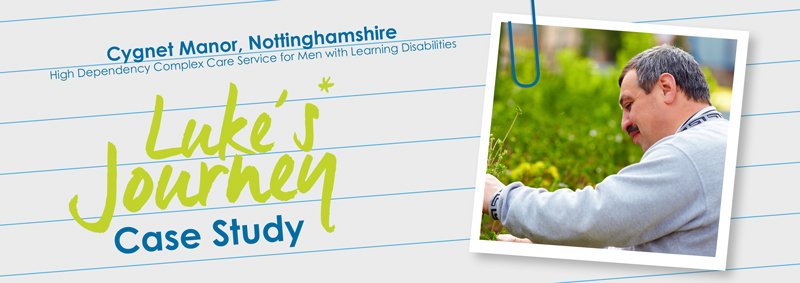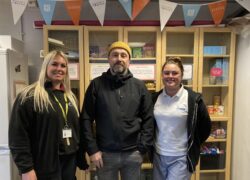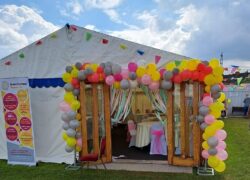
Luke’s* history
Luke has a moderate learning disability associated with abnormally aggressive and seriously irresponsible behaviours. He lived in the community with his family throughout his childhood, and became involved with services when his behaviours were no longer able to be managed. Luke spent time in various settings including prisons, hospitals and community placements and remained in services for most of his adult life due to interventions having a limited effect. He frequently moved around as services realised they were not able to meet his needs.
When Luke came to us
When Luke arrived at Cygnet Manor, he was taking a substantial amount of medication to help manage aggressive and violent behaviours, that were frequently directed towards staff and peers. He displayed disinhibition and lack of impulse control which was putting him and others at risk. Luke found communication very difficult and was reluctant to engage with therapeutic interventions, he often expressed suicidal thoughts and desires to go home.
The team identified that Luke utilised aggression to express his needs and became violent towards staff when he could not communicate and when they were not instantly met. Luke’s lack of structure and routine contributed to his challenging behaviour.
Luke’s care
Throughout the early stages of admission, it was clear to the team that building a therapeutic rapport with Luke would be hugely important. The Multi-Disciplinary Team (MDT) and support staff worked with Luke to create a structured day to day routine. They utilised robust positive behaviour support (PBS) plans to encourage positive behaviours, which also allowed staff to share the supportive techniques to best encourage Luke.
In order to build on this relationship, it was key to support Luke develop his communication skills. A grab sheet was used to enable him to communicate with staff, peers and visitors, and staff created a bespoke gesture book. The book contained images of the signs he used in order for the staff to better understand him. The occupational therapy team worked alongside Luke to identify helpful sensory strategies and coping techniques to use when he was feeling overwhelmed.
In time, Luke became more receptive to therapeutic interventions and began to attend and enjoy some relaxation sessions. Staff became aware of his triggers and supported him with distraction techniques such as colouring and painting or listening to music. His risk behaviour reduced and expressions of suicidal behaviours and thoughts decreased significantly.
Luke then began to utilise regular leave into the community to play pool and really enjoyed talking to members of the public that he met.
Luke today
Luke has now moved into a supported living accommodation in his home city, where he can see his favourite football team’s home ground from his window. He has regular daily access to the community and continues to partake in therapeutic activities. Luke has a better rapport with his staff and is able to continue to use the skills and communication techniques that he learnt at Cygnet Manor, including his gesture cards to express how he is feeling. The future is looking very bright for Luke.
*Name has been changed to protect his identity




